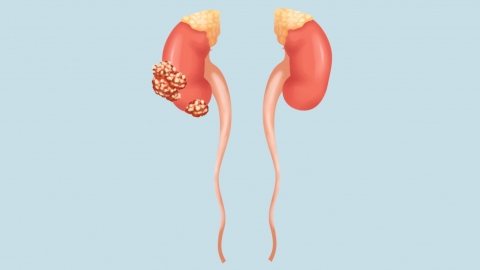What are the early symptoms of kidney cancer?
Generally, early symptoms of kidney cancer include hematuria (blood in the urine), flank pain, abdominal mass, fever, and fatigue. If experiencing any of these symptoms, it is recommended to seek medical attention promptly. Detailed explanations are as follows:

1. Hematuria
During the growth of kidney cancer, the tumor may invade blood vessels within the kidney, causing them to rupture and bleed. The blood then mixes with the urine, resulting in hematuria. This symptom typically presents as painless, intermittent gross hematuria visible to the naked eye, although in some cases red blood cells may only be detectable under a microscope.
2. Flank Pain
The kidneys are located on both sides of the lower back. As the tumor grows, it may stretch the kidney's capsule or invade surrounding tissues, stimulating nerves in the flank area and causing dull or aching pain. The pain is usually persistent and may worsen with physical activity or fatigue.
3. Abdominal Mass
As the tumor continues to grow and reaches a certain size, a mass may be palpable in the abdomen by either the patient or a physician. This mass typically feels firm, has an irregular surface, remains relatively fixed in place, and may sometimes be tender to the touch.
4. Fever
Kidney cancer tissue may release pyrogenic substances such as tumor necrosis factor. These substances act on the body's thermoregulatory center, raising the body's temperature set point and causing fever.
5. Fatigue
Kidney cancer is a type of wasting disease. As tumor cells grow, they consume nutrients from the body, leading to insufficient nutritional supply. Additionally, certain metabolic byproducts produced by the tumor may interfere with normal bodily functions, resulting in symptoms such as fatigue and weakness. In severe cases, this may affect the patient's ability to perform daily activities.
Maintaining a healthy lifestyle is important. Quitting smoking, limiting alcohol consumption, eating a balanced diet rich in fresh vegetables and fruits, reducing intake of high-fat, high-salt, and high-sugar foods, as well as engaging in regular moderate exercise to maintain a healthy weight and strengthen the immune system are all recommended preventive measures.





